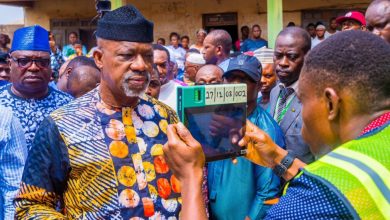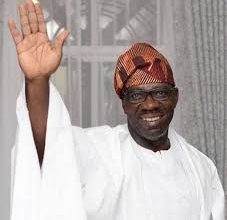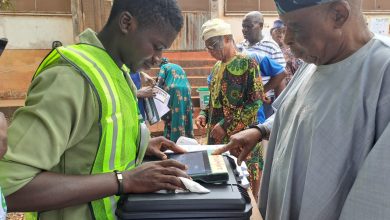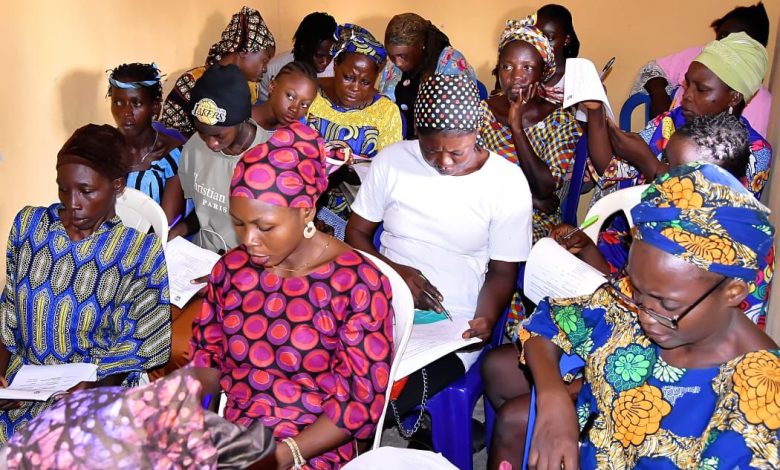
MacArthur Foundation collaborates Non-Governmental Organisations over Community Engagement on Gender-Inclusive in Elections
The Women’s Rights Advancement and Protection Alternative (WRAPA) in collaboration with Gender Development Initiative (GenDi), Change Managers International Network (100 Women Group) and New Era Initiative for Persons Living with Disabilities (NEIFPWD) on Wednesday organized a community engagement programme focused on gender inclusive in elections.
Penpushing reports that the engagement sponsored by MacArthur Foundation was held in Ijebu-Ode town of Ogun State, with number of participants including women, youths, persons with disabilities, and community stakeholders
The community engagement programme titled “Elect Her Now: Voices of Gender-Inclusive Elections” was continuation of the programme emphasizing on advancing inclusive electoral participation for women, youth, and persons with disabilities (PWDs).
Penpushing further reports that representatives from Gender Development Initiative present at the engagement included Miss Aina Omolola, the Monitoring and Evaluation Officer, and Mr Abayomi Soyinka, the Finance Officer.
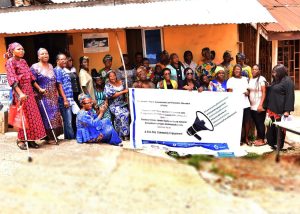
The other attendees include Mrs Habiba Ahmed from Women’s Rights Advancement and Protection Alternative (WRAPA) and Mrs Taiwo Adebanjo, the Ogun East Coordinator and Executive Director of Rays of Hope Community Foundation (ROHCOF), who played a central role in facilitating the programme.
Penpushing also reports that Executive Director of Rays of Hope Community Foundation and Ogun East Coordinator for Change Managers International Network (100 Women Group), in her opening remarks highlighted the objectives of the engagement.
The Executive Director pointed out the need to foster equitable access to political spaces through policy reform and societal inclusion, and equally acknowledged the support of WRAPA and the MacArthur Foundation.
Penpushing reports that she reaffirmed the importance of collective action in dismantling systemic barriers that hinder full participation in governance, particularly for women, youth, and persons with disabilities.
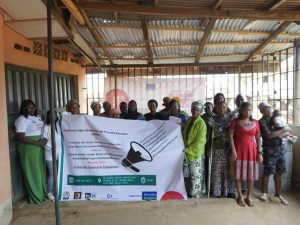
The Director extensively discussed the critical need for gender equality and progressive electoral reform, noting that inclusive governance is a prerequisite for national development and democratic sustainability.
Penpushing further reports that she referenced the Uwais Electoral Reform recommendations, highlighting their emphasis on transparency, accountability, and inclusivity in Nigeria’s electoral processes.
The Executive Director, however, lamented the longstanding neglect of these recommendations, especially those aimed at enhancing women’s representation in governance, drawing attention to a glaring gap in political inclusion.
Penpushing also reports that Adebanjo cited that although the national gender policy has, for over a decade, recommended a minimum of 35% affirmative action for women’s representation in political and decision-making positions, women currently occupy only 4.8% of such positions in Nigeria, describing this as a clear indication of systemic failure and societal resistance to gender equity, urging all stakeholders to intensify efforts to close this gap.
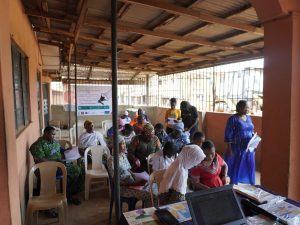
The Ogun East Coordinator for Change Managers International Network (100 Women Group), emphasized that the objective of the engagement was to foster a more inclusive political and civic space one where women and marginalized groups are not only seen and heard but are also empowered to lead and influence policy.
Penpushing reports that she expressing appreciation to Women’s Rights Advancement and Protection Alternative (WRAPA) and the MacArthur Foundation for their invaluable support and unwavering commitment to grassroots advocacy and inclusive governance.
The Director’s team in conjunction with Miss Aina Omolola, Monitoring and Evaluation Officer at GenDi administered a pre-sensitization survey to assess participants’ baseline knowledge
Penpushing further reports that this was followed by an open-floor dialogue session led by. Adebanjo, where attendees shared personal experiences and insights around gender-based exclusion and electoral inequality.
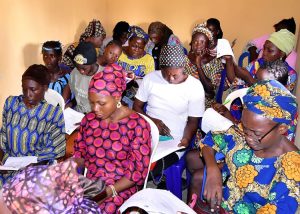
The participants who spoke at the engagement which include speech-impaired noted that women often fail to support other women in politics, stressing the importance of intergenerational mentorship and solidarity among women as a means to foster progressive leadership and sustainable inclusion.
Penpushing also reports that the speech-impaired participant, who described how persons with disabilities are frequently manipulated during elections due to inaccessible information and weak support systems, shared her experience and highlighted the urgent need for institutional reforms to protect the voting rights of People With Disabilities (PWDs).
The other participant a B.Sc. graduate living with a disability, shared her personal experiences of emotional, social, and institutional discrimination, particularly in her pursuit of employment and active participation in civic life.

Penpushing reports that she spoke about the multiple layers of exclusion faced by persons with disabilities—not only from physical inaccessibility but also from widespread societal stigma and systemic neglect.
The participant urged the Independent National Electoral Commission (INEC) and other relevant bodies to prioritize and implement inclusive electoral practices that ensure persons with disabilities can vote and engage in governance safely, independently, and with dignity.
Penpushing further reports that in addition, she raised a critical concern about the integrity of the voting process for persons with physical impairments, noting that those assigned to assist them at polling units are often influential in swaying or manipulating their electoral choices.
The participant said this compromises the right to free and informed voting for people with disabilities and further disenfranchises an already marginalized population, and therefore called for stronger safeguards and accountability mechanisms to protect their autonomy and uphold their civic rights during elections.

Penpushing reports that, these testimonies shed light on the lived realities of underrepresented communities and reinforced the need for intentional reform in electoral systems, community attitudes, and policy implementation.
FOOTNOTE: You want to share story with us? You want to advertise with us? You need publicity for product, or service, or event? Contact us on WhatsApp +2348073463653 or email penpushing@yahoo.com



